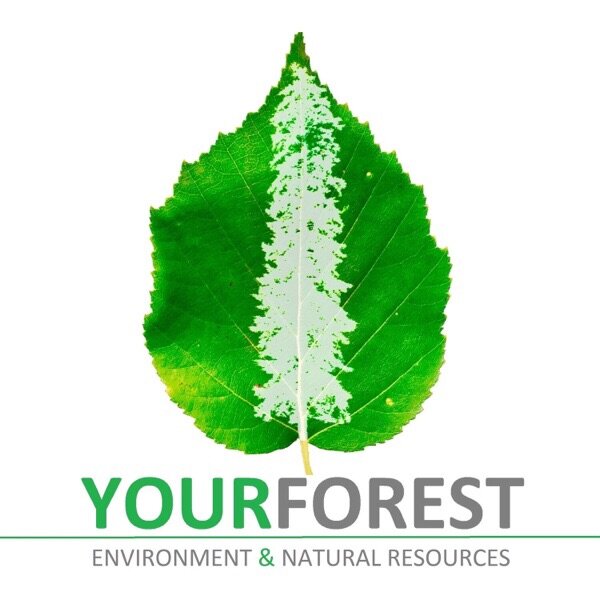Do we have a moral obligation to Nature? Most people extend moral standing to their family, friends, town, country, maybe as far as human species. What about beyond that? Animals? Sure, they have a nervous system and they can be cute. What about things that are nothing like us? Trees? Fungi?… Rocks? What universal force obliges us to act respectfully toward them? Does ethics even apply to rocks? Or was this just the tired ramblings of an overthinker? Listen and see…
Resources
Hunting - Philosophy for Everyone
Sponsors
Quotes
29.09 - 29.23: “That’s often how the respect ethic has accounted for larger ecosystemic problems, is by saying that there are other human beings that are affected.”
Takeaways
Out of doors (05.44)
Nathan explains that some environmental writers prefer to say ‘out of doors’ instead of outdoors, to step away from the connotations of masculinity and related activities that the outdoors are usually associated with. He narrates how he became interested in environmental philosophy when he found that his childhood activity of hunting could be studied through a philosophical lens. His doctorate supervisor was a vegan but they established a productive research relationship.
Depth and profundity (13.55)
Nathan defines philosophy as “the search for the meaning of things,” though meaning can also be found through poetry, religion, etc. Philosophy helps us understand if things are meaningful and why, by posing helpful questions about meaning. Many disciplines bracket philosophical pursuits whose answers can be found in the field of philosophy. He acknowledges that there are legitimate criticisms of philosophy, but it offers a rigorous process to get closer to answers.
“Part of being a philosopher is being frustrated” (16.23)
Nathan finds that philosophy attempts to answer questions that humans have always wondered about, and the process of finding the answers repeats over and over. The answers one comes across could be what work for them, but may not be the final answer. While those answers should not be mere projections of each individual’s idea of meaning, subjectivity is at the heart of philosophy.
Moral frameworks (23.19)
Morality, Nathan says, is about “trying to discover the answer to questions of human behaviour,” and is used interchangeably with ethics in philosophy. Harm minimization (utilitarianism) and respect (deontology) are two frameworks of ethics, but they could conflict. Deontology follows duties based on moral principles, even if that may not reduce harm, while harm minimization can be achieved without consent, without respect.
If you believe you can or Kant (27.24)
Immanuel Kant, the classical deontologist, believed that only rational beings could be the recipients of moral regard because they could reciprocate respect, which Nathan believes is a deeply anthropocentric position to take. Harm minimization is implicit within respect but can be extended to non-sentient objects as well. Therefore, Nathan believes that kicking a rock could be disrespectful, even if it is not a being that can reciprocate respect or have feelings.
How useful is utilitarianism? (31.49)
Nathan talks about utilitarian philosopher Peter Singer’s theory that our circle of consideration must evolve to include non-human animals, but he also defines the limits of that circle. Nathan believes that if we expanded our sense of self to include others, we could continue to be selfish, an anthropocentric model to conceptualize nonhumans. Utilitarianism, he notes, looks at the individualized relation as fundamental, so the respect framework is a better ethical framework to use for nature.
“If you are not having anxiety when you are philosophizing, you are not doing it right” (37.53)
Nathan finds a sense of meaning in a sense of belonging in nature in a way that is embedded into what already exists. His identity comes from nature rather than in opposition to it. To him, respecting nature and its components is important. He emphasizes that the philosophy of nature must be involved in an ongoing conversation with facts. Resource extraction must be governed by the limits of ethics in order to keep the natural world alive and respect its components.
Mindfulness (53.12)
Nathan believes that a person’s sense of connection with and belonging to nature may impact the outcomes of activities done in nature, but it will surely help them discover things about themselves. Awareness may lead to the desire to do better, even if that is an uncomfortable place to be in. To think of humans as the creators of the world is a dangerously anthropocentric view where the world will be tamed into a source of desire fulfilment for exploitative humans.
Thinking is piety (1.05.03)
Nathan believes that the way in which we should relate to nature is to fit into a larger framework, so we can see ourselves as connected to nature, instead of as the centre of the universe. To impose our sense of self onto others, including nature, is violent and therefore unethical. Philosophizing, and therefore constantly questioning everything, helps shed arrogance and develop a deep appreciation for the regality of the world.
Re-indigenizing the planet in the Anthropocene (1.20.07)
Nathan laments the atrocities that were committed in the conquest of the land that has now come to be known as Canada. However, he finds hope in nature, that it is stronger than a conquering culture can be. He believes Canada has “a uniquely strong potential for decolonizing” not only politically, but also in our relationship with nature. He speaks of Indigenous philosopher Jeannette Armstrong’s wish of indigenizing settlers.
Questioning the tools of colonization (1.30.29)
Nathan speaks of how agriculture was a tool of colonization, and how certain animals he hunts follow agricultural patterns. Environmental aesthetics and language both determine and shape how humans relate to the natural world and Indigenous peoples, and he believes it is good to question the basics of each of these in order to understand our relationship with the world around us.
If you liked this podcast, please rate and review it, share it on Instagram, Twitter and Facebook and tag a friend, and send your feedback and comments to yourforestpodcast@gmail.com.

